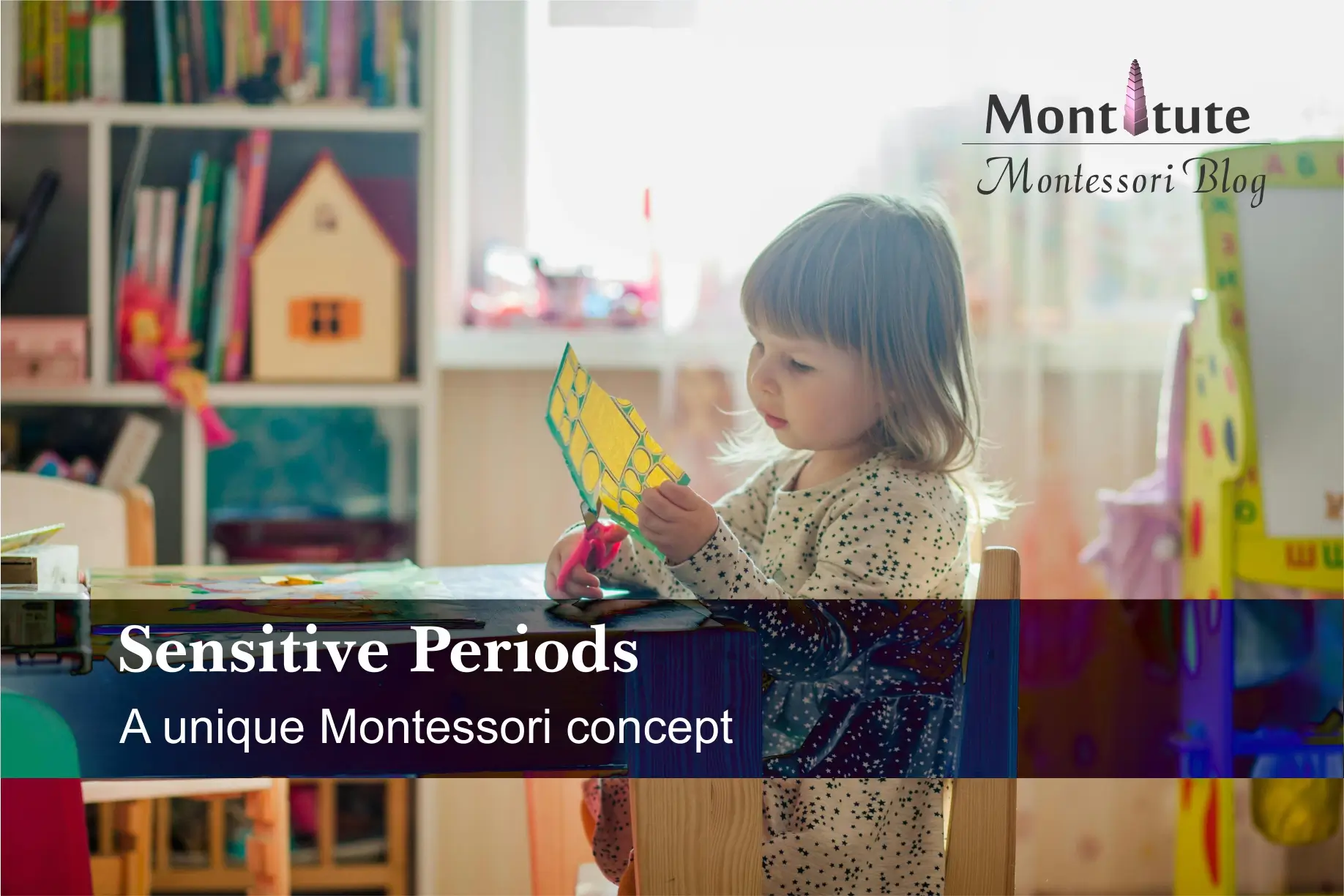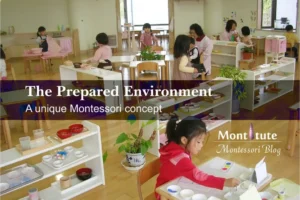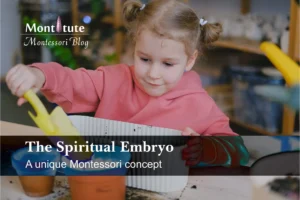
Sensitive Periods in Montessori Education
- Posted by Montitute
- Categories Montessori Education, Blog
- Date June 12, 2025
- Comments 0 comment
Sensitive periods are unique windows of opportunity in a child’s early life when their mind is especially tuned to acquire certain abilities. Unlike general development, which happens continuously, these sensitive periods are temporary but intense. During these phases, children show a deep fascination or obsession with a particular type of activity or learning.
Dr. Montessori described these periods as being “transitory”—they come, they flourish, and then they fade. Once a sensitive period ends, the same learning can still occur, but it will require more effort and will not feel as natural to the child.
Key Features of Sensitive Periods:
Intense Focus: Children may repeat activities endlessly with joy.
Effortless Learning: They seem to absorb knowledge unconsciously and easily.
Internal Drive: Children are naturally drawn to experiences related to the skill they are developing.
Short-lived: Each sensitive period has a beginning and an end.
The Main Sensitive Periods (Birth to Age 6)
Let’s look at the major sensitive periods that Montessori identified in early childhood, typically from birth to around six years old. Understanding these can help you offer the right materials, environment, and support at the right time.
1. Sensitive Period for Order (Birth to around 5 years)
What it looks like: Children may show a strong preference for routines, consistency, and things being “in their place.” They might get upset if a usual order is disrupted or if an object is moved from its usual spot.
Why it matters: A sense of order helps children understand the world. It provides them with security and helps them build logical thinking.
How to support it:
Keep routines consistent (e.g., same bedtime rituals).
Maintain an orderly environment with clearly defined places for everything.
Involve children in tidying and organizing.
2. Sensitive Period for Language (Birth to about 6 years)
What it looks like: From cooing and babbling to using complex sentences, children absorb spoken language with amazing ease. They enjoy rhymes, songs, stories, and later, writing and reading.
Why it matters: Language is a foundation for communication, thinking, and social interaction.
How to support it:
Speak clearly and respectfully to your child.
Offer rich vocabulary through conversation and storytelling.
Provide books, language games, and opportunities for expression.
3. Sensitive Period for Movement (Birth to around 4.5 years)
What it looks like: Children show an eagerness to move their bodies—crawling, walking, climbing, running, and refining hand movements. They love to carry, pour, sort, and manipulate objects.
Why it matters: Movement is linked to brain development and independence. It allows children to explore and interact with their world.
How to support it:
Create safe spaces for movement.
Offer materials that encourage fine motor skills (e.g., puzzles, tongs, dressing frames).
Encourage independence in daily activities.
4. Sensitive Period for Small Objects (Around 1 to 4 years)
What it looks like: Children become fascinated by tiny details and small objects. They might spend a long time examining insects, crumbs, or small beads.
Why it matters: This period helps children develop concentration, observation skills, and fine motor control.
How to support it:
Provide safe, small manipulatives and activities (e.g., threading beads).
Go on nature walks and observe small details together.
Avoid overwhelming them with too much at once—let them focus.
5. Sensitive Period for Social Behavior (Around 2.5 to 6 years)
What it looks like: Children begin showing interest in others, learning how to interact, share, and understand social rules. They often mimic adult behaviors and test boundaries.
Why it matters: This period is critical for building empathy, cooperation, and manners.
How to support it:
Model respectful and kind behavior.
Encourage grace and courtesy activities (e.g., how to greet someone, say thank you).
Provide opportunities for cooperative play and role-playing.
Why Timing Matters
Missing a sensitive period doesn’t mean the skill can’t be learned later, but the learning might take more effort and feel less natural. For instance, a child who doesn’t learn a second language during the sensitive period for language may still learn it later—but likely with more difficulty and less fluency.
The more responsive we are to these windows, the more empowered children become in their growth. Recognizing these stages means we don’t have to force learning—we simply follow the child and prepare the environment to meet their needs.
How to Recognize a Sensitive Period in Your Child
Here are some clues that your child might be in a sensitive period:
Repeating the same activity many times without boredom.
Seeming especially drawn to a type of play or material.
Showing strong emotions when interrupted during a favorite task.
Demonstrating noticeable leaps in ability in a specific area.
If you see these signs, don’t rush to correct or redirect your child. Instead, observe, support, and extend their interest.
Practical Tips for Parents and Educators
Observe more, interfere less. Trust that children know what they need during sensitive periods.
Prepare the environment. Make materials accessible, attractive, and appropriate for the developmental stage.
Be patient. Let the child repeat and practice without pushing outcomes.
Provide time. Children need uninterrupted time to explore deeply.
Celebrate effort, not just results. Sensitive periods are about internal growth, not external performance.
Conclusion
Montessori’s discovery of sensitive periods is a powerful tool for understanding and supporting children’s natural development. Rather than pushing children to learn on a schedule, the Montessori approach encourages us to observe, prepare, and respond—helping each child unfold their potential in a joyful and organic way.
Whether you are a parent guiding your child at home or an educator in a Montessori classroom, embracing sensitive periods will help you foster learning that is deep, meaningful, and lasting. In doing so, you are not just teaching children; you are partnering with their inner developmental drive—a process both beautiful and profound.
You may also like

Montessori Discipline

The Montessori Prepared Environment

